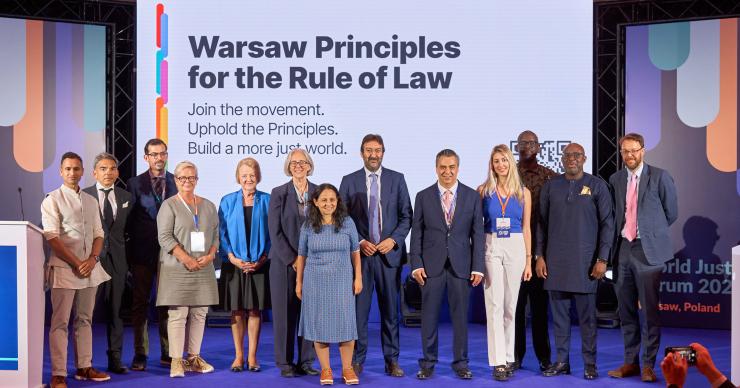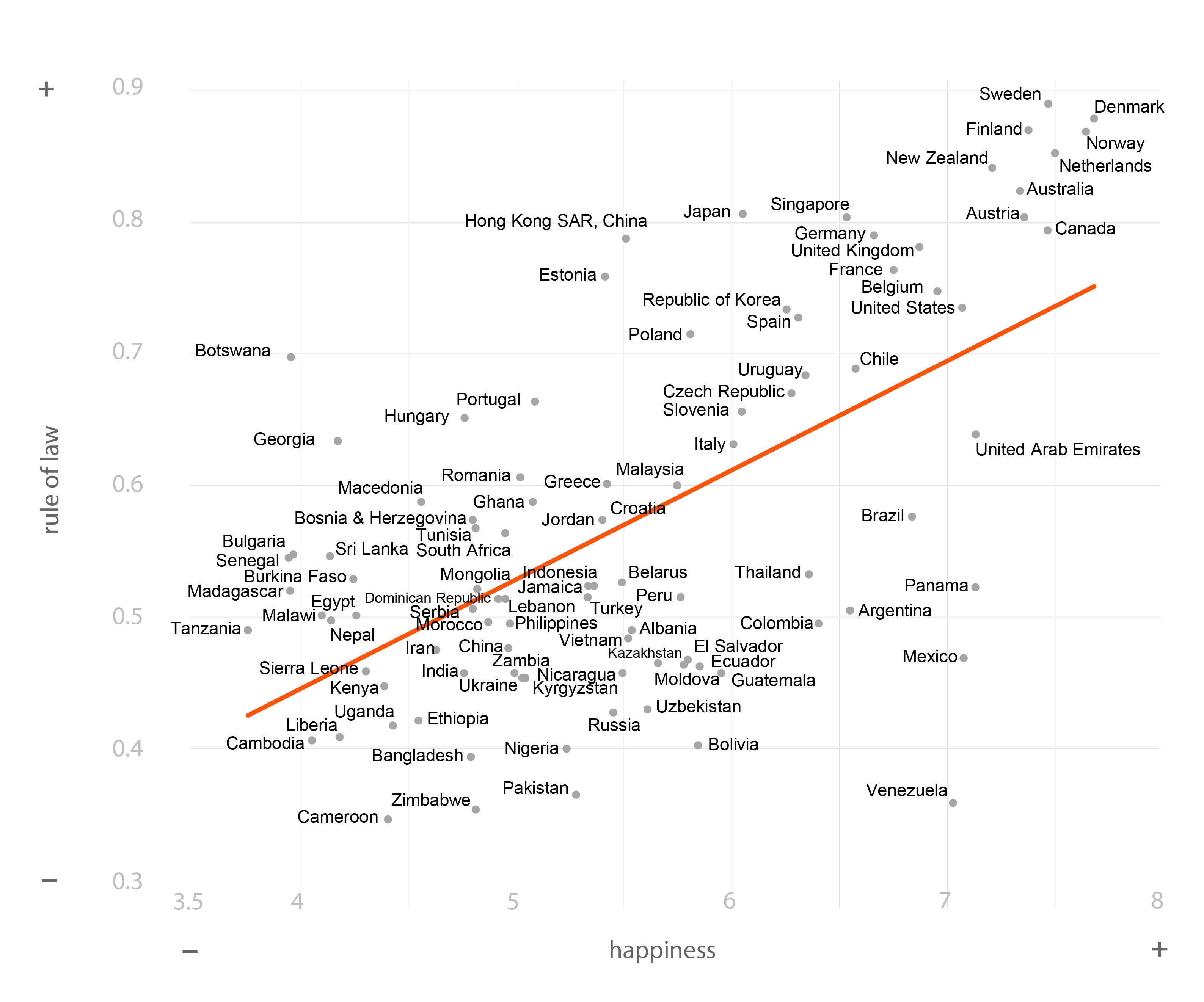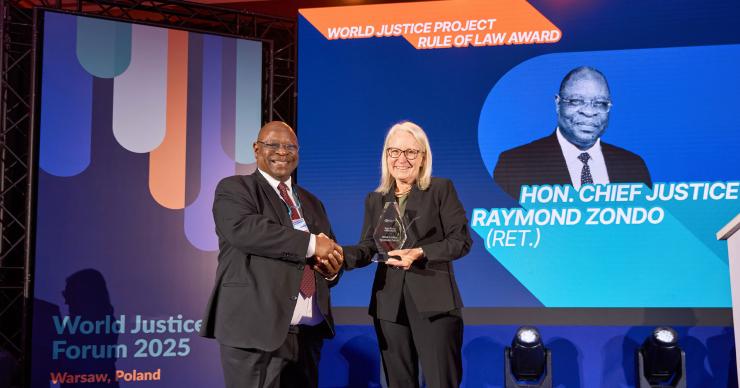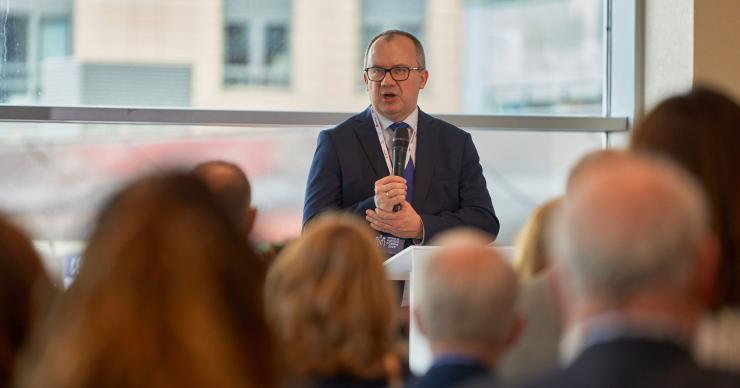
Last Monday, the UN released its second annual World Happiness Report. Encouragingly, the report showed that the world has overall become a slightly happier and more generous place over the past five years. This made us curious; how does a country's happiness compare to its level of rule of law and how might these two concepts be related?
One marked similarity between happiness and the rule of law is that the same few countries are performing especially well with regard to both indices; namely, Denmark, Norway, the Netherlands, and Sweden. These four countries ranked within the top five in both the World Happiness Report and the Rule of Law Index. Beyond this similarity, there also appears to be an overall positive correlation between a country's level of rule of law and happiness. This shows that a country with limited rule of law is more likely to also be a country with lower levels of happiness just as a country with strong rule of law is more likely to be one with happier citizens.

In addition to this positive correlation, there are also similarities between the factors of the rule of law and what the UN has defined as determinants of happiness. This suggests that authors of the World Happiness Report believe some aspects of rule of law have a direct effect on levels of happiness.
Specifically, a country's happiness is determined by looking at numerous factors (e.g. social support, GDP, levels of generosity), of which two directly overlap with elements used to create the World Justice Project's Rule of Law Index; a citizen's freedom to make life choices and their perception of corruption. According to the UN's argument, high levels of freedom or perceptions of high levels of corruption either positively or negatively affect a country's level of happiness just as these two factors positively or negatively affect levels of rule of law (82).
While the World Happiness Report concludes that in many countries happiness is on the rise, this should not overshadow the fact that these are only slight improvements from previous levels of happiness that were rather low and in numerous countries happiness has decreased. Hence, there is still much room for improvement in terms of global happiness. To address this, the authors of the report make a specific request that the analytical community comes forward to help governments and policymakers around the world better understand which policies would raise well-being in a sustainable way (109).
In response to this, we suggest that one of the best ways to do so is by following policies that promote a country's rule of law since the two concepts are positively correlated and already have areas of overlap. By ensuring that governments are accountable and open, reducing corruption, increasing security, protecting fundamental rights, promoting regulatory enforcement, and improving systems of civil and criminal justice, many of the barriers to happiness and overall well-being can be reduced or eliminated.

Read More





